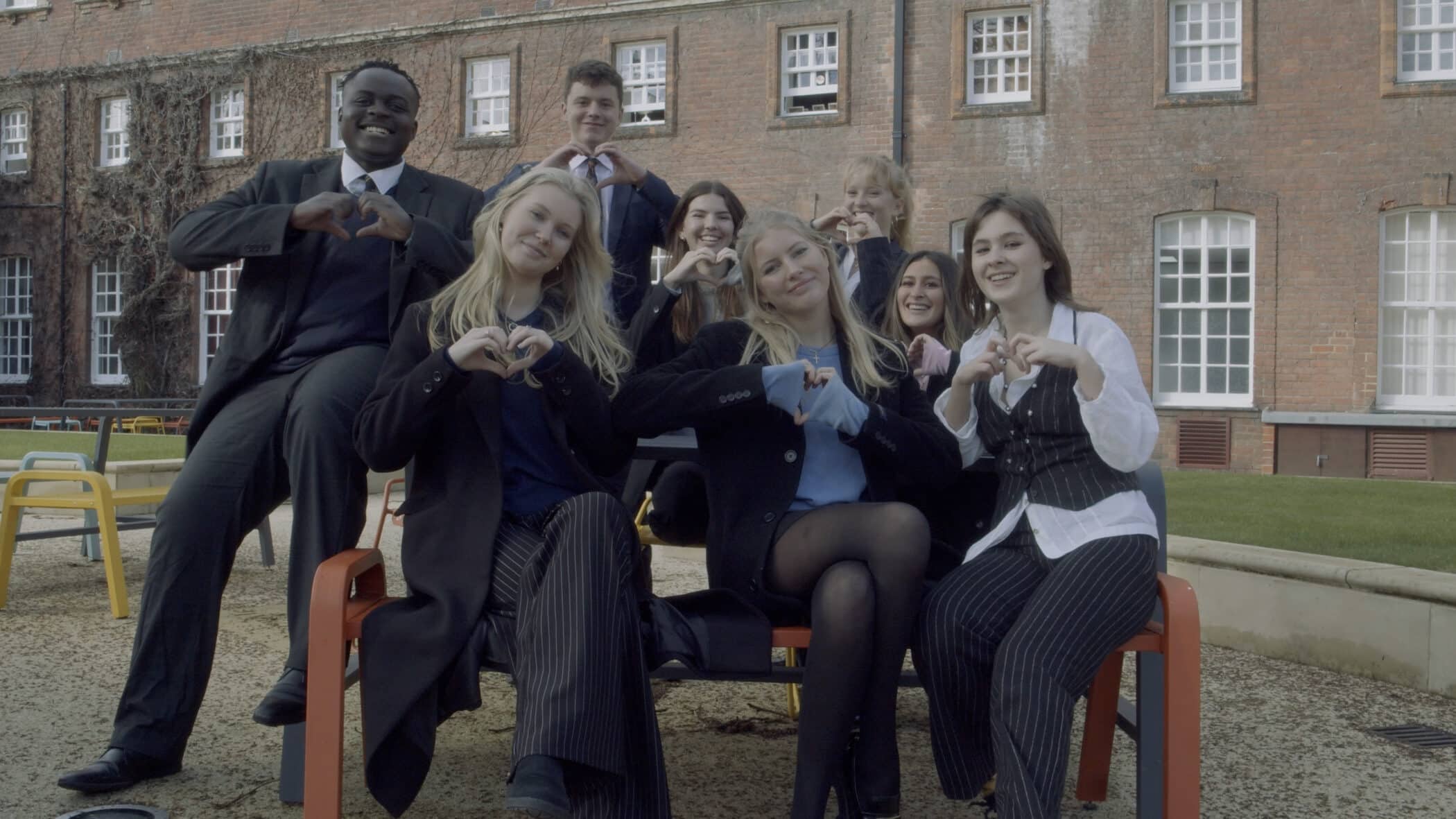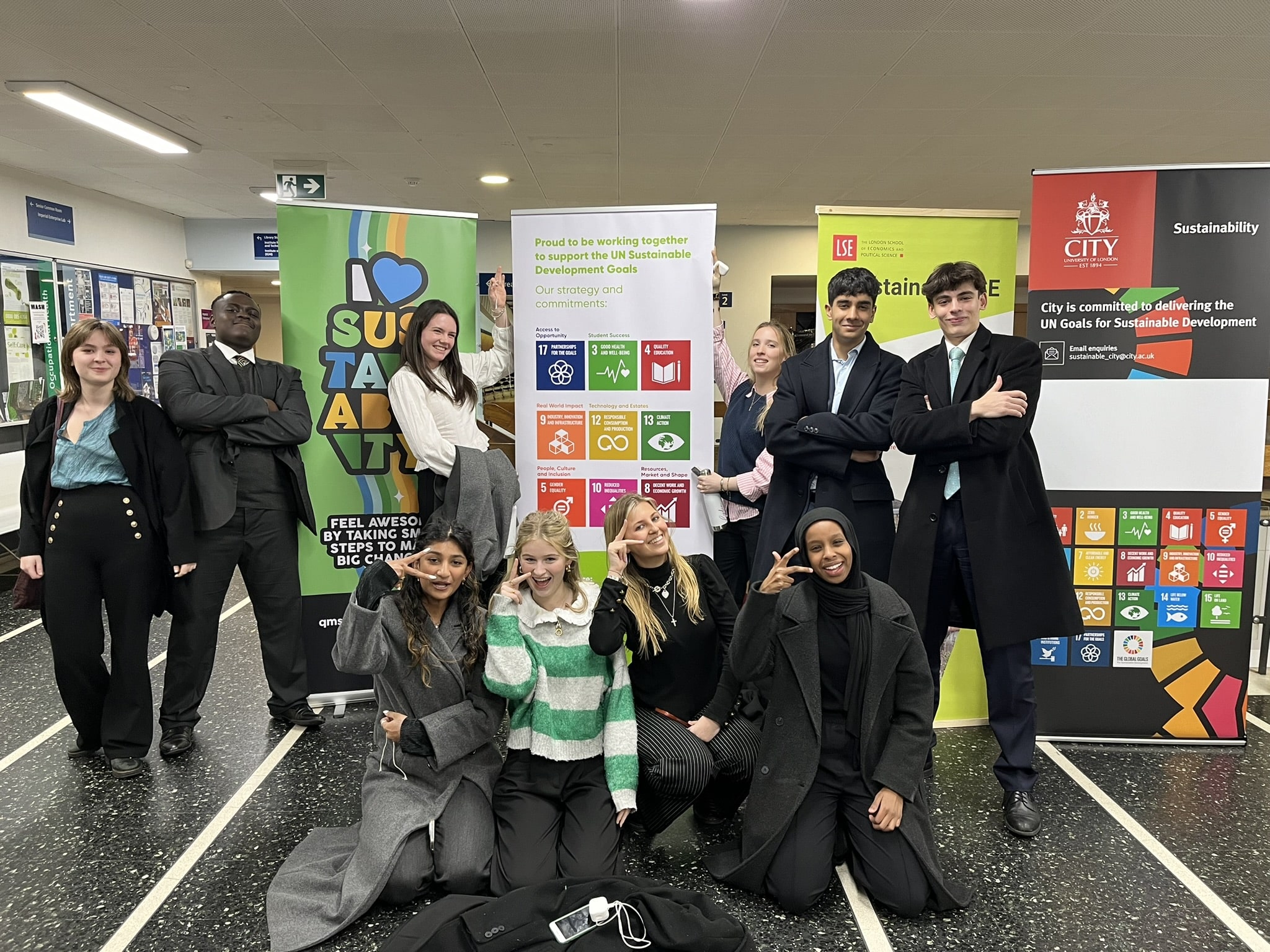
“It is not enough to be busy; so are the ants. The question is: what are we busy about?” American philosopher, Henry David Thoreau
Wellington College’s recently published Social Impact Report 2024 answers two clear questions: What are the outcomes achieved in the academic year 2023-24, and what is our vision to deliver impact over the longer term? This year’s report deliberately focuses less on the busyness of what’s been done – and more on what these actions have meant and what has changed.
Wellington’s purpose is to strive for a more inclusive, equitable and sustainable world, urgent ambitions that are reflected at a global level by the six UN Sustainable Development Goals (SDGs) to improve health, wellbeing and education; and reduce inequality, overconsumption and climate change. These goals have informed the College’s Social Impact Framework which articulates our ambitions and the logical pathway to get there.
Naima Charlier, Director of Equality, Diversity, Inclusion and Social Responsibility said, “I am incredibly proud of the dedication and creativity demonstrated by colleagues and students in advancing the UN Sustainable Development Goals and how this report focuses on the progress we are making towards each one of our ambitions. It’s inspiring to see how everyone is willing to think outside the box and embrace iterative approaches, driving meaningful progress toward a better world for all. Our young people have consistently brought refreshing perspectives to tackling complex challenges and their ability to find innovative solutions serves as a great reminder of just what powerful change makers our students can be”.
Inclusion 
UN data shows that removing barriers to inclusion will be essential for achieving the full range of SDGs and Wellington wants to empower pupils to develop into inclusive and empathetic leaders, actively removing barriers to inclusion in their communities.
Some key programmes from 2023-2024 at College have included a fresh cohort of 36 Inclusion Ambassadors who undertake specialist training to learn about inclusion and support their peers. The Ambassadors have led assemblies to inform other pupils about neurodiversity, Black History Month and International Women’s Day; and featured in the International Holocaust Day service.
EDI is now a regular agenda item for the Executive Leadership Team with an additional eight leadership hours earmarked per year for EDI challenges and approaches. All new hires are inducted in Wellington’s EDI expectations, and an EDI update or training now features at each of the three INSET training days.
A recent assessment by Third Form pupils as to how informed they feel on global issues in July 2024, at the end of their Global Citizenship course, established that their understanding is at the highest level reported for four years. This reflects recent changes to the programme including a new course on sustainability.
Beyond campus, we saw inclusion in action during February half-term when 27 members of the Wellington College Peace & Conflict Institute spent two days supporting the work of Care4Calais in the refugee camps at the French port. Pupils were involved in both backroom operations and frontline humanitarian support, including entering the camps to provide hot drinks, offer English lessons or play games with the residents.
 Equity
Equity
With rising income inequality within the UK and long-term real funding cuts for state education, Wellington’s ambition is to help as many pupils as possible to discover, develop and pursue their passions for the future.
There are several programmes in place at Wellington to promote a more equitable world, including the fully funded Prince Albert Foundation (PAF) bursary programme which provides a Wellington education for children from disadvantaged backgrounds. Internal data showed that in 2024 38% of our PAF A-level pupils achieved grades that were higher than those that had been predicted for them based on their GCSE results, suggesting that the Wellington learning environment has enabled these pupils to engage better with education.
The Wheeler Programme has enabled over 90 state school pupils to attend the College regularly for additional skills, study and experience. Looking at a single year group, the Wheeler cohort due to graduate the programme in 2026 is already testing 8% higher for motivation than they did in February 2023.
Our Grants scheme and the Arts Fund disbursed more than £450,000 this year directly to schools in the state sector. An annual event, we were pleased to also see the benefits of the 2023 grants awards coming through, as pupils enjoyed better outside learning areas, new IT equipment, teaching resources, curriculum development and special needs facilities. One year on, headteachers have confirmed that these funded school improvements have removed a source of worry. Wellington College’s Learning Alliance events have supported human resources in schools by providing knowledge, networks and skills to 200 teachers from 25 schools, as well as 4,200 state school pupils.
Wellington has close ties with neighbouring Edgbarrow School with a long-term commitment to provide free Latin teaching to their pupils from Years 8-11, with Wellington Lower Sixth pupils acting as teaching assistants. This year, 30 Edgbarrow pupils opted to study Latin as an additional after-school academic commitment, four pupils were entered for Latin GCSE in July, with two securing a Grade 8 and two a Grade 7.
Sustainability
Wellington’s goal is to support pupils to undertake responsible lifestyles and to equip them to help advance environmental solutions in the future. This will be achieved by embedding a green curriculum and building a College culture which champions sustainability.
Our co-curricular Global Citizenship programme includes a focus on Sustainability. Over eight sessions, 207 pupils in the Third Form explored key sustainability themes including climate change, resource management and responsible citizenship. Eight of our older pupils have earned the Certificate in Carbon Literacy awarded by the Carbon Trust and Wellington pupils set up a Mock UN Climate Change Conference, an immersive experience that mirrored international climate negotiations.
One pupil joined Ana Romero, Head of Sustainability at Wellington, to spend two days in Dubai at COP28, where they engaged with students, high-level decision makers, and international networks. They presented a Student Declaration on Climate Change, representing the voices of over 6,000 students from around the globe. This impactful involvement is part of Wellington’s ongoing commitment to amplifying youth perspectives in the climate dialogue.
Ana says, “At Wellington College, we are making significant strides towards sustainability and climate education by integrating a comprehensive curriculum grounded in the principles of education for sustainable development. Through initiatives like our sustainability programmes and immersive experiences such as the Mock UN Climate Change Conference, our students are empowered to become proactive champions of the climate and sustainability agenda at local, regional, national, and international levels”.
Wellington has just launched a decarbonisation programme and baselines have been set for biodiversity across the College site. This year Wellington has brought its recycling rates in line with the national average for organisations. A contributing factor in this improvement was the introduction of better waste processes in the V&A café to reduce the amount sent to landfill. These processes will be rolled out soon across the College. As part of Earth Week, pupils pledged to undertake more sustainable habits, such as walking more and using less energy when cooking. A pupil-led ‘lights off’ day encouraged all pupils and staff to undertake more mindful consumption.
Read Wellington’s 2024 Social Impact Report in full







